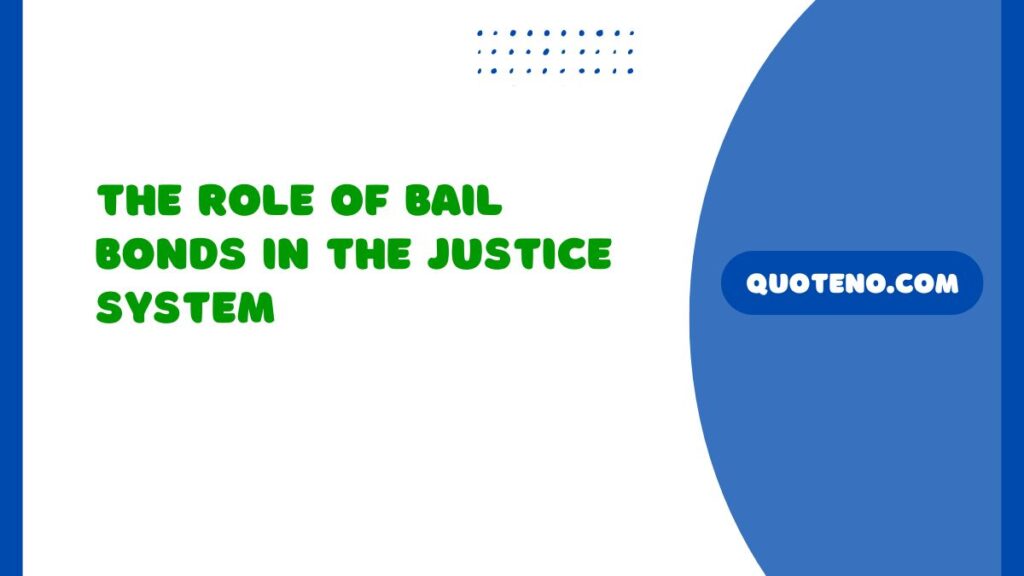Bail bonds play a crucial role in the legal system by ensuring defendants show up in court through monetary assurance. In essence, if an individual is accused of a crime, the court might establish a bail sum to ensure their freedom during the trial period. The bail bond guarantees the defendant will come back for their scheduled court date.
For example, PA bail bonds are crucial for people facing legal obstacles in Pennsylvania.
These bonds allow defendants to carry on with their everyday routines, stay employed, and care for their families during the time leading up to their court appearances. Comprehending the intricacies of bail bonds is essential as it dictates how defendants navigate their legal struggles and can significantly affect the judicial system.
Gain a deeper understanding of bail bonds by exploring the fundamentals and significance of this legal resource.
Key Takeaways
- Bail bonds act as a security to ensure defendants appear in court.
- Courts set bail based on various factors, including the severity of the crime and the defendant’s flight risk.
- Failing to appear in court can have severe consequences for both the defendant and the person who posted bail.
- Bail bond agencies play a crucial role in helping defendants secure temporary release.
- Understanding the bail bond process can assist individuals in making informed decisions during legal proceedings.
Table of Contents
How Courts Determine Bail
When setting bail, courts take a number of considerations into account. The gravity of the alleged offense, the defendant’s prior criminal record, and their likelihood of fleeing are some of these variables. Higher bail may be imposed, for instance, on those accused of violent crimes or those who have a history of missing court dates. The suspect’s employment situation, general demeanor, and connections to the community are all taken into consideration by the court.
The Bureau of Justice Statistics states that when determining the right bail, judges also take the defendant’s connections to the community and community safety into account. These components guarantee that the bail sum is reasonable and situation-specific, striking a balance between the public’s safety concerns and the accused’s rights.
The Role of Bail Bond Agencies
Bail bond agencies provide a lifeline for those who can’t afford to post bail directly. These agencies are vital because they make bail accessible to people from various economic backgrounds. A bail bond agency charges a fee, usually a percentage of the total bail amount, to guarantee the full bail amount to the court on behalf of the defendant. This fee is typically non-refundable but is a small price to pay for the freedom to prepare for a court case from outside the confines of jail.
The bail bond process often involves collateral, such as property or other assets, to further secure the bond. This service ensures that even individuals with limited resources have an opportunity to prepare for their court case from outside jail. This preparation time can be crucial, allowing defendants to consult with attorneys, gather evidence, and strategize for their defense, which could lead to more favorable outcomes in court.
The Consequences of Skipping Bail
Jumping bail can have severe repercussions. If a defendant fails to appear in court, a warrant is typically issued for their arrest, and the bail amount is forfeited. This affects not only the defendant but also the bail bond agency or individual who posted bail. The forfeited bail is a significant financial liability and loss of trust for all parties involved. According to the American Bar Association, bail bond agents frequently employ bounty hunters to locate and return defendants who skip bail.
These bounty hunters have the authority to track down, apprehend, and return the defendant to the court’s jurisdiction, potentially adding another layer of legal trouble for the runaway defendant. The ramifications of skipping bail are profound and can exacerbate legal issues, resulting in more severe penalties and loss of future bail opportunities.
Benefits of Bail Bonds
Bail bonds offer several benefits, including the ability to work, meet with legal counsel, and maintain family responsibilities while awaiting trial. This temporary freedom can have a significant impact on the outcome of the case. It allows defendants to actively participate in their defense, which can lead to fairer trials. The bail bond system also helps reduce the overcrowding of jails, allowing the justice system to function more efficiently.
On a personal level, the emotional and psychological benefits of being out of jail cannot be overstated, as defendants can maintain a sense of normalcy and dignity during a challenging period. Furthermore, being released on bail enables defendants to better collaborate with their attorneys, attend to personal matters, and demonstrate good behavior, which can be favorable during court evaluations.
Conclusion
It might be pretty essential to comprehend the purpose and advantages of bail bonds while dealing with stressful legal issues. They give defendants a means of maintaining some semblance of normalcy as they wait for their court date. Furthermore, one must take into account the function of bail bond companies in the legal system.
For those navigating the judicial system, they provide a helpful service that aids in maintaining the delicate balance between freedom and accountability. Bail bonds help people obtain temporary release, which benefits defendants as well as the judicial system’s general effectiveness and justice. This guarantees that the legal procedure is both efficient and effective.
- Top Group Camping Activities to Enhance Your Outdoor Experience - February 26, 2026
- How Modern Orthodontics Is Changing Smiles for All Ages - February 26, 2026
- How Personalized Weight Loss Plans Are Transforming Lives - February 26, 2026

